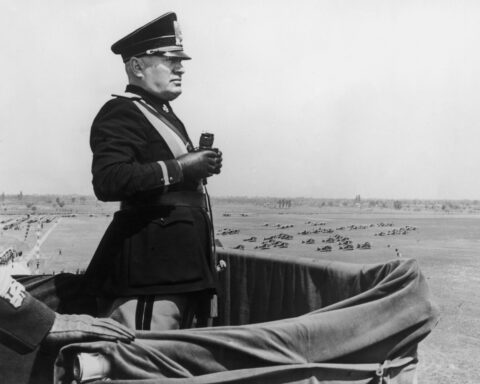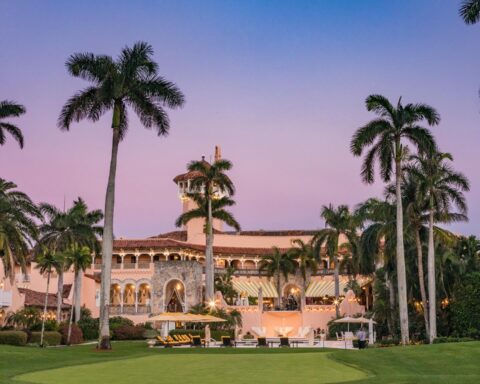The final declarations of COP 29, the United Nations conference on climate change, and the G20 economic summit were deemed disappointing by many countries and observers. At a time when the climate has never been as hot as it will be in 2024, when the economy is sluggish and the planet is reeling from the Russian-Ukrainian and Gaza-Israel conflicts, these exchanges failed to produce any truly constructive progress.
Mountains give birth to mice.
The COP29 and G20 meetings held in Baku, the capital of Azerbaijan, from November 11 to 24, and the second in Rio de Janeiro, Brazil, on November 18 and 19, will not go down in history.
Their conclusions seemed all the more inappropriate given that, on the one hand, the Ukraine-Russia and Gaza-Israel wars are getting bogged down, with the risk of degenerating into global conflict; on the other hand, the global economy is in very poor shape; and finally, the climatic context broke a sad record in 2024. It was the hottest year on record, with temperatures at least 1.5° higher than the pre-industrial average.
This led to a series of cataclysms on every continent, including terrible fires in California (USA), heat waves and typhoons in Asia (Taiwan, Philippines…), and terrible floods in Africa (Nigeria) and Europe (Valencia, Spain).
Despite the emergency context, it was a difficult birth for the 197 countries gathered at COP29. The 29th edition of the United Nations Climate Change Conference had to play overtime from Saturday 23rd to Sunday 24th. And it was only during the night that an agreement was reached.
A baby that left many disappointed
“No country got everything it wanted, and we’re leaving Baku with a mountain of work to do. So now is not the time to claim victory”, said Simon Stiell, head of UN Climate, summing up the feelings of many.
As ever, money was the sinews of war. The tug-of-war at COP29 centered on the amount of money to be given to developing countries by the European Union and the 23 developed countries (European Union, Great Britain, United States, Canada, Australia, Japan, New Zealand, etc.). The latter were the historical culprits of climate change at the first COP, held in Rio de Janeiro (Brazil) in 1992.
The final document of COP29 calls for the richest countries to devote at least “$300 billion a year by 2035”, in the form of loans and grants, to help developing countries cope with climate upheaval.
More concretely, the rich countries’ contribution will come from public funds and private investments mobilized or guaranteed by them. One innovation welcomed by the Europeans was the fact that climate financing from non-developed countries, provided via multilateral development banks, could be included in the planned 300 billion.
Global taxes
Lastly, potential global taxes (on large fortunes, aviation or shipping), still on the global negotiating table, could complete the envelope.
The sum agreed at COP29 is three times that of the previous COP15 agreement, i.e. $100 billion per year between 2020 and 2025.
But this is still too little in the eyes of the countries of the South. In addition to the deleterious effects of inflation, which further erode the impact of the earmarked sum, they were counting on a minimum of 500 billion dollars, and a maximum of 1,000 billion dollars… Enough to finance a costly transition from fossil fuels to low-carbon alternatives.
For their part, the countries required to open their stock exchanges reacted in contrasting ways.
The leading contributor, the European Union, officially welcomed the agreement through its Commissioner for Climate Action, Wopke Hoekstra, who said that “COP29 will go down in history as the beginning of a new era for climate finance”. But this was not at all the opinion ofthe French Minister for Ecological Transition, Agnès Pannier-Runacher, who judged the agreement “disappointing” and “not up to the challenges”.
A step forward?
The Anglo-Saxons were more pragmatic.
For British Energy Secretary Ed Miliband, this “critical last-hour agreement [taken] at the last hour for the climate” is “not everything we or others wanted, but it is a step forward for us all”.
Outgoing US President Joe Biden also described Cop 29 as a “great step forward”, while admitting that therewas still “a lot of work to be done to achieve our climate goals”.
However, the Western countries lost out on an important point: they wanted the list of countries liable to foot the bill for global warming to be extended to include countries that are no longer really developing countries, namely Singapore, the Gulf states and, above all, China.
In the end, however, these countries managed to stay off the list of contributors, with China being particularly insistent. Non-developed countries were indeed invited by the agreement to make financial contributions, but on a “voluntary” basis...
An insult to poor countries
For their part, poor countries feel that the COP29 final declaration falls far short of the mark. The text was “too weak, too late and too ambiguous ‘ for Kenyan President Ali Mohamed, ’not ambitious” for Evans Njewa, the leader of Malawi, on behalf of the world’s 45 poorest countries, and “an insult” for Nkiruka Maduekwe, the representative of Nigeria. Shortly before the conference, Nigeria had been hit by flooding, which took a heavy toll (30 deaths and the displacement of 400,000 people).
India’s delegate, Chandni Raina, was equally angry, describing the proposed amount as “pitifully low” and the text as “derisory”. The Asian peninsula has been hit by several deadly heat waves this year.
Fossil fuels off the agenda
Finally, and unsurprisingly, given that the host country of COP29, Azerbaijan, accounts for 0.7% of the world’s oil production and 0.9% of its gas production, the issue of the transition away from fossil fuels was left out of the text… This principle, a major achievement of COP28 in Dubai, now only appears in the form of a reminder of the previous agreement. Gone is the European Union’s wish to reinforce this approach and obtain annual monitoring of efforts to move away from oil, gas and coal…
An omission as big as Ionesco’s Rhinoceros… And whose cousin can be found in the balance sheet of the G20, which also “forgot” to make an allusion in its final text to the exit from fossil fuels, but also, on a completely different level, to Russia’s responsibility in the war in Ukraine…
Unlike COP29, which was slow to finalize its text, the delivery of the G20, the summit bringing together 19 countries and two regional unions, was premature. The final declaration, signed by Brazil’s President Lula, was published on Monday evening, even though the summit did not end until the following day, Tuesday.
But this haste is a bit like an express funeral.
On the question of fossil fuels, the absence of any mention was explained by some as a consequence of the election to the American presidency of Donald Trump, who has never hidden his climate skepticism.
Generally speaking, on the subject of climate, the G20 was not very talkative, even if the final declaration mentions the need to increase “climate finance from billions to trillions, from all sources”.
No condemnation of Russia
Many observers were also shocked by the G20’s final document on current conflicts. Admittedly, it welcomes “all relevant and constructive initiatives for peace” and refers to “the principles of peaceful, friendly and good-neighborly relations between nations”. But while he called for a ceasefire in Gaza, he avoided condemning Russia’s role in the aggression in Ukraine…
Visiting Brazil for the occasion, Emmanuel Macron echoed the sentiments of other Western leaders, taken aback by the omission. The French President, for his part, judged the text to be “below the formula we have already been able to achieve”. He added that “this does not change France’s position. We have to be very clear on the fact that this is a war of aggression by Russia against Ukraine, and that our priority is to obtain a lasting peace”.
On another economic front, Emmanuel Macron reiterated his opposition to the agreement between the European Union and Mercosur…
“There is a desire for very close ties with this continent and in particular Brazil, which is the largest market in the region, but not at the expense of our agriculture,” he stressed.
Another issue that stalled at the G20 was the tax on billionaires’ wealth, a project supported by President Lula and countries such as France. Conceived by the young French economist Gabriel Zucman, it consists of a 2% levy on the wealth of the world’s 3,000 richest people.
But the idea fell on deaf ears at the Rio G20, which confined itself to positions of principle on information exchange and a necessary debate on tax evasion.
As with the issue of fossil fuels, the position of the United States, the Number One country in terms of the number of billionaires, is crucial to the success of such an initiative.
However, the Biden administration has already shown little enthusiasm on the subject. And it’s a safe bet that Donald Trump, himself a mega-rich man who has announced his intention to appoint billionaires, financier Scott Bessent to the Treasury, and the Elon Musk-Vivek Ramaswamy duo as ministers of government efficiency, will block such a tax.
In the end, the G20 did little to give the world a new economic impetus…
“Created twenty-five years ago to provide global economic governance with a broader instrument than the G7, a club of the richest countries, and better suited to dealing with global financial crises, the G20 is in turn the expression of the decomposition of the international order and the weakening of Western influence “ commented the newspaper Le Monde.
A line of reasoning that could be applied, in large part, to Cop 29…
Read also > Mercosur agreement: a new sticking point in the European Union
Featured Photos: Unsplash+















